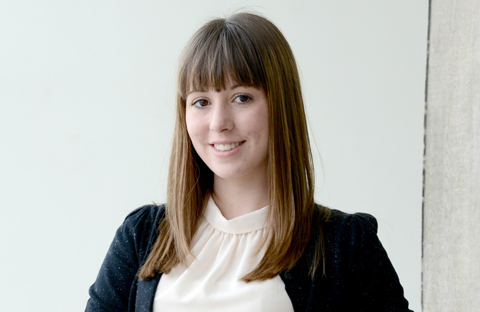Deep in the Mountains of Wales lie two fierce dragons, put to sleep by a courageous king and forming the mounds of Snowdonia. These rich, green hillsides create the landscape for inspirational stories.
Welsh teenager, Beth Reekles, has recently been named one of Time magazine’s most influential teenagers due to her best selling book, The Kissing Booth. Following in the footsteps of other influential Welsh writers such as Dylan Thomas, Martin Amis and Roald Dahl. Her story was a reaction to all the fantasy and science fiction themes running through young adult fiction; ironically this rebels against the typical nature of Welsh storytelling, ignoring any magical or supernatural elements. Yet the supernatural appears the most inspirational aspect of Welsh culture and landscape.
Beth admits she is a fan of the supernatural, but wanted to create something different. Some of her Welsh literary influences include Cardiff-born, Roald Dahl and Queer as Folk/Dr Who screenwriter, Russell T Davies. Welsh legend also played a major part in stirring Beth’s imagination,”I remember being taught lots of myths in primary school – we would read them in class and often write short stories about them.” The teaching of Welsh myth in primary schools encourages a prevalent storytelling community within Wales, Beth says. She also believes this community has proven to be an important one with storytelling circles and traditions such as the Eisteddfodd, Europes oldest and largest cultural festival; Not to mention the myths of the Mabinogion and legends like Gelert, King Arthur and Rhiannon. There has never been a time when Wales wasn’t churning out narratives and influencing stories worldwide.
Beth has received letters from all over the world, “I find it really amazing when I get messages from other young girls who’ve read my book and tell me that I’ve inspired them to write their own books too,” she comments.
Landscaping the Myth
While Beth inspires the world, another Welsh New York Times best selling author author, Paula Brackston has recently released her new supernatural novel, The Winter Witch, set in 19th Century Wales. The book features characters by the names of Morgana and Cai Jenkins and is described as “very much a love letter to the Welsh landscape and the wildness of the place,” by the author.
Brackston grew up in the Black Mountains and now resides in the Brecon Beacons. She cites the mountainous landscape as a huge influence, admitting that for her “nothing is more uplifting than a hilltop view across the valley or the sound of buzzards or skylarks. Welsh mud and rain are in my very soul.”
Not all of Brackston’s books are set in Wales but she believes that her Welsh upbringing “colours and informs” the way she writes. And is witness to a thriving and strong tradition of storytelling within Wales, orally, written and via song.
The Winter Witch being distributed in both the UK and the US- further spreading the word of Wales and hopefully inspiring more writers globally.
A little known Welshman to have a great influence on modern storytelling is Arthur Machen. Hailing from King Arthur’s mystical court, Caerleon, Machen wrote supernatural fiction up until the early 20th century. His novella, The Great God Plan has had an immense influence on American horror writers, including Stephen King and H.P. Lovecraft.
Arthur Machen was heavily inspired by the landscape of Gwent and the Usk Valley, incorporating the views into his writings, according to Gwilym Games, librarian and editor of Machenalia, a periodical for the friends of Arthur Machen.
Games says he used two main mythical elements in his stories: “the Twyleth Teg, fairy-folk, following tradition and making them dangerous.” And the Holy Grail, of which he gave a new presentation to, Games says, describing it as “a tangible object – a new idea at the time.”
Machen’s holy-grail ideas have survived into present day with writers like Dan Brown (The Da Vinci Code) and Hollywood royalty George Lucas (Indiana Jones and the Last Crusade).
Magical Resonance
Wales based, Tim Lebbon, author of the Toxic City Trilogy and 30 Days of Night novelization, cites Machen as a big influence. Lebbon lives in Gwent and imagines crossing paths with the horror writer while he walks the same vast landscape that helps conjure his narratives.
“The landscape features heavily in my work. I have just completed the first non-fantasy I’ve ever written, entirely set in the Welsh mountains,” he comments.
But the mythology is what really gets him excited, “there’s such deep rooted mythology in Wales, going back to the Celtic times and before – that’s all rich for the mining.”
As Beth Reekles has proven, it’s not just in mystical genre fiction that the Welsh excel, although our mythology has roots that weave themselves throughout modern fantasy genres. Wales is home to hills that expel a mystical force, encouraging her people to write. Authors seem to all feel a deep connection with Wales, and allow her to map her way into their work, whether it is just a spark of inspiration or an entire myth to re-work. No doubt, the Welsh are and have been behind the scenes, influencing western literature for hundreds of years.


